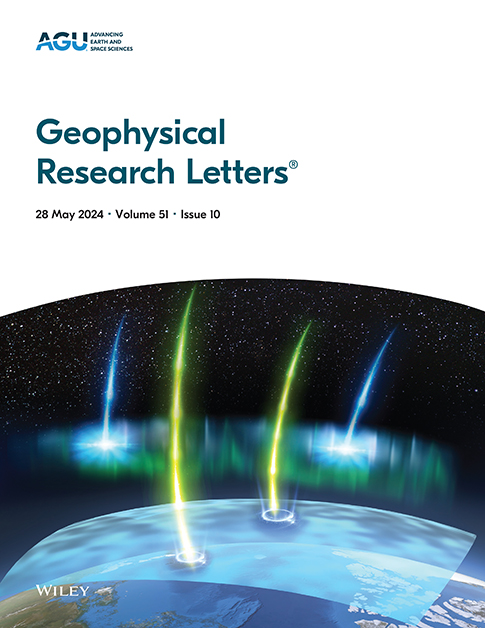Data-Driven Predictions of Peak Warming Under Rapid Decarbonization
IF 4.6
1区 地球科学
Q1 GEOSCIENCES, MULTIDISCIPLINARY
引用次数: 0
Abstract
The severe impacts associated with recent record-setting annual global temperatures elevate the need to accurately predict the hottest conditions that could occur even if the most ambitious decarbonization goals are achieved. We use convolutional neural networks (CNNs) to predict peak global warming from recent observed temperature maps and future cumulative CO2 emissions. For the SSP1-1.9 decarbonization scenario there is >99% probability that mean global warming exceeds 1.5°C, approximately even odds that it reaches 2°C, and ∼90% probability that the hottest year globally exceeds 2023 by at least 0.5°C. Further, for the SSP2-4.5 decarbonization scenario, there is >90% probability that the hottest annual global temperature anomaly is twice the 2023 anomaly. That our framework makes highly accurate out-of-sample predictions of the hottest historical year provides confidence in the predicted future probabilities, suggesting substantial risks from the extreme local conditions that are likely to result from globally hot years during rapid decarbonization.求助全文
约1分钟内获得全文
求助全文
来源期刊

Geophysical Research Letters
地学-地球科学综合
CiteScore
9.00
自引率
9.60%
发文量
1588
审稿时长
2.2 months
期刊介绍:
Geophysical Research Letters (GRL) publishes high-impact, innovative, and timely research on major scientific advances in all the major geoscience disciplines. Papers are communications-length articles and should have broad and immediate implications in their discipline or across the geosciences. GRLmaintains the fastest turn-around of all high-impact publications in the geosciences and works closely with authors to ensure broad visibility of top papers.
 求助内容:
求助内容: 应助结果提醒方式:
应助结果提醒方式:


